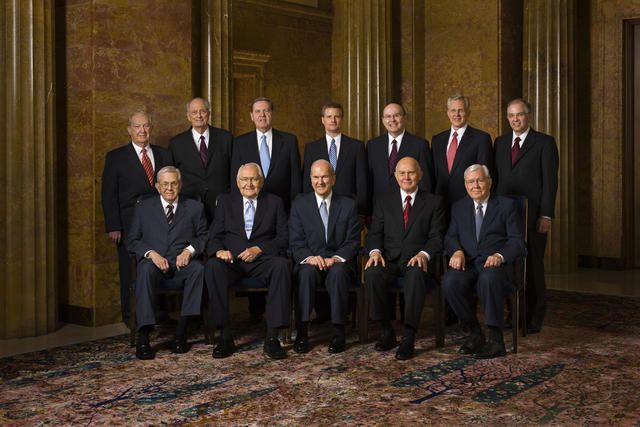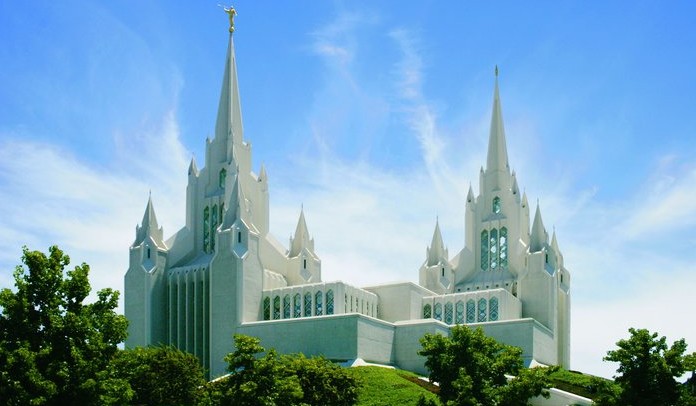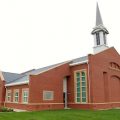Question
Gramps,
With the passing of beloved Apostle L. Tom Perry there is now a vacancy as it were in the Quorum of the Twelve Apostles. I am interested to know what the process is for choosing a new Apostle.
Barbara
Answer
Dear Barbara,
Jesus set the example for selecting apostles when He chose the original 12. “And it came to pass in those days, that he went out into a mountain to pray, and continued all night in prayer to God. And when it was day, he called unto him his disciples: and of them he chose twelve, whom also he named apostles” (Luke 6:13-14). Such callings are made in the spirit of prophesy and revelation. Later, when there was a vacancy in the 12, Peter followed the example of his Master by meeting with the disciples in a season of united “prayer and supplication” (Acts 1:13-14). He addressed the group and led them in selecting someone wholly familiar with the works of the Savior. So they selected “men which have companied with us all the time that the Lord Jesus went in and out among us, Beginning from the baptism of John, unto that same day that he was taken up from us”. All so the ordained nominee could be an effective and powerful “witness with us of [Christ’s] resurrection” (Acts 1:21-22). They once more prayed, and the Lord’s will was made known via lots (Acts 1:24,26), selecting Matthias.
Apostles in our modern dispensation were also chosen from among men who learned discipleship. “The Twelve shall be my disciples,” says the Lord when listing requirements and duties, “and they shall take upon them my name” (D&C 18:26-35). It comes as no suprise then, that the Twelve were selected from men who saw the Lord’s work in a new dispensation. A meeting was called in Feb 1835, of those who had journeyed to redeem Zion. This group saw firsthand the Lord fighting their battles agains enemies and scourging them for disobedience. They were taught order and obedience. Those not in this group learned similar lessons through their missionary labors. Please note as this meeting unfolds the role that prayer, revelation, and order play in the Three Witnesses selecting the apostles (in accordance with D&C 18:37-39). Joseph Smith, first elder and apostle (see D&C 20:2), asked the congregation
“if they would be satisfied to have the Spirit of the Lord dictate in the choice of the Elders to be Apostles; wherupon all the Elders present expressed their anxious desire to have it so.
“A hymn was then sung… President Hyrum Smith prayed, an meeting was dismissed for one hour.
“Assembled pursuant to adjournment, and commenced with prayer.
“President Joseph Smith, Jun., said that the first business of the meeting was, for the Three Witnesses of the Book of Mormon, to pray, each one, and then proceed to choose twelve men from the Church, as Apostles, to go to all nations, kindreds, tongues, and people.
“The Three Witnesses … united in prayer.
“These Three Witnesses were then blessed by the laying on of the hands of the Presidency. The Witnesses then, according to a former commandment, proceeded to make choice of the Twelve.” (History of the Church 2:185-187).
It’s all there: There’s prayer (multiple prayers) and supplication in the pattern of the Savior and His apostles of old. There’s the revealed will of the Lord – it even gets the weight of scripture when the selection is again confirmed by revelation (D&C 124:127-129). There’s the proven devotion of the candidates with a familiarity of the Lord’s work. The only thing lacking in this story is charge to be a witness of Christ’s resurrection. Once again, revelation informs us that this council of twelve differs from others in that their role is synonymous with their ambassadorship. They are “special witnesses of the name of Christ in all the world—thus differing from other officers in the church in the duties of their calling” (D&C 107:23). I said before that these twelve had learned the lessons of discipleship, and so they had. But just as the former Twelve were called well before they had reached the pinnacle of understanding (they all doubted the women’s accounts of the Resurrection – not just Thomas), so these modern apostles had room for improvement as well. The Charge given by Oliver Cowdery (first to Elder Pratt, then to the general Twelve) focused on their discipleship and particularly to the witness they were to carry.
“[The ancients] had this testimony, that they had seen the Saviour after he rose from the dead. You must bear some testimony, or your mission, your labor, your toil will be in vain. You must bear the same testimony that there is but one God, one Mediator; he that has seen Him will know Him, and testify of Him. …
“You have been indebted to other men in the first instance for evidence; on that you have acted; but it is necessary that you receive a testimony from Heaven for yourselves; so that you can bear testimony to the truth of the Book of Mormon, and that you have seen the face of God. That is more than the testimony of an angel. When the proper time arrives, you shall be able to bear this testimony to the world. When you bear testimony that you have seen God, this testimony God will never suffer to fall, but will bear you out; although many will not give heed, yet others will. You will, therefore, see the necessity of getting this testimony from Heaven.
“Never cease striving till you have seen God face to face. Strengthen your faith; cast off your doubts, your sins, and all your unbelief, and nothing can prevent you from coming to God. Your ordination is not full and complete till God has laid His hands upon you. We require as much to qualify us as did those who have gone before us; God is the same.” (Autobiography of Parley P. Pratt, by Parley P. Pratt. pages 148-150).
At the sustaining of Elders Nelson and Oaks to the apostleship, President Hinckley testified of a similar revelatory process still taking place. Note again the roles of prayer, revelation, discipleship, and witness of Christ.
“Yesterday we sustained two of our Brethren in this sacred calling, thus, after they are ordained, filling the Council of the Twelve Apostles. I want to give you my testimony that they were chosen and called by the spirit of prophecy and revelation. There was much of prayer concerning this matter. There was discussion with President Kimball, the prophet of the Lord in our day, and a clear statement from him, for his is the prerogative in these matters. There was a clear and distinct impression, what I choose to call the whisperings of the Holy Spirit, concerning those who should be selected to assume this most important and sacred responsibility. These who have been called are men of experience in the world and in the Church. …
“Their service in the Church has been noteworthy. Since the time they were boys, each has been faithful and active. Each has served in a stake presidency. Each has served as a Regional Representative. They have been involved in many capacities of Church service, and have performed with excellence in each instance. But this is not why they were called.
“They were called because the Lord wanted them in this office as men who have a witness of his divinity, and whose voices have been and will be raised in testimony of his reality.” (Special Witnesses for Christ by President Gordon B. Hinckley, April 1984 General Conference).
With the passing of Elder Perry, the governing councils of the Church will follow the long-established pattern. The President of the Church (Christ, Peter, Joseph Smith presiding over the Three Witnesses, Spencer W. Kimball, and today Thomas S. Monson) will counsel with leading disciples (Christ apparently counselled solely with His Father, Peter with 120 disciples, Joseph with the Three Witnesses, President Kimball with the First Presidency, and President Monson also with the First Presidency and any other Councils he wishes to include), seek God’s counsel through prayer, receive revelation, and challenge the newly ordained apostle to live up to his calling.
Gramps







